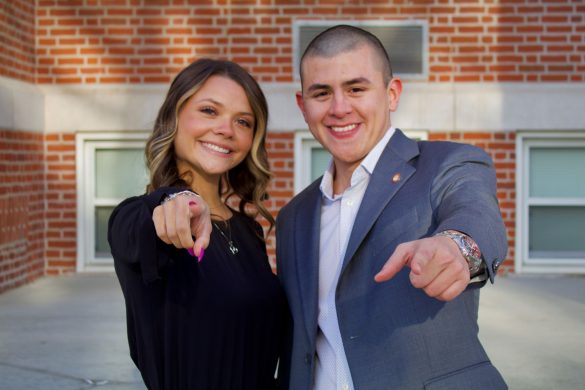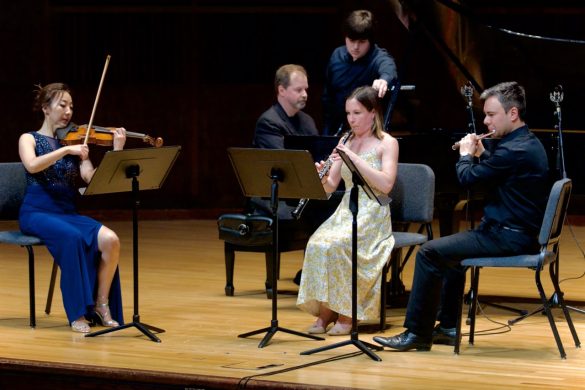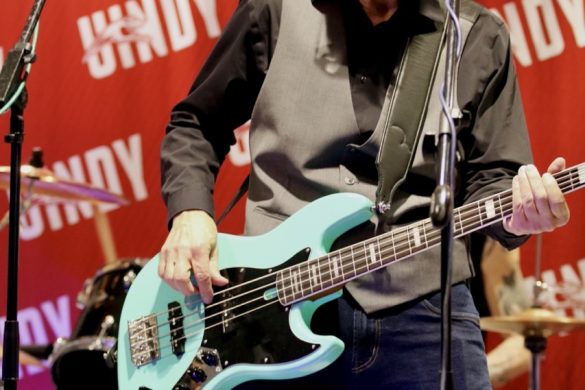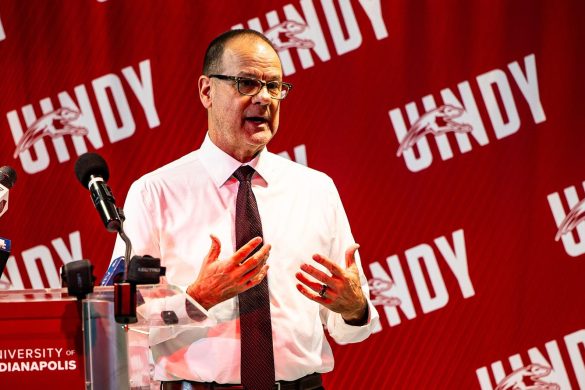The year is 1938, you find a radio broadcast while skimming the FM waves that said aliens were invading Earth. Fear and panic shoots through your body, and others are panicking as well, adding to the nervousness you feel. There were already threats of war and a dictator looming in the air, anything else could happen to make it worse.
Unfortunately, that was the reality for some on Oct. 30, 1938 with the broadcasting of the radio drama “War of the Worlds,” because some of the people did not hear the disclaimer at the beginning of the broadcast.
The University of Indianapolis Department of Theatre will be re-enacting the radio drama on WICR on Halloween night at 6 p.m. and 8 p.m. However, the cast has changed a bit in terms of gender roles, Grant Williams, director of the UIndy production of “War of the Worlds” and associate professor of theatre, said.
The atmosphere of the broadcast will be similar, though, as the global pandemic is occurring, creating uneasiness, Williams said, but the audience should be more informed this time around. Technology has been around for a while and it is harder to be misled from a broadcast, senior theatre major Marcus Sciarra said.
“The new inventions of technology were just beginning and, there was the radio then came TV and then the internet. So it was probably easier to get misled back then due to the lack of technology,” Sciarra said. “But nowadays we have the technology to kind of know when we’re being misled and not, but I would say the overall message you should take away from [the radio drama] is if you encounter something that makes you skeptical, go with it. Don’t just believe it immediately because there could be some more underlying details. You never know.”
Sciarra is playing two characters, the narrator of the play, Orson Welles, and Richard Pearson, a scientist who is studying Mars at the time of the invasion. In terms of rehearsal and overall performance, Sciarra said he believes this play is like the majority of the others he has been in. There is a friendly atmosphere, rehearsals are similar, they just lack physical elements, according to Sciarra.
“Honestly I don’t feel a difference,” Sciarra said. “I mean obviously the obvious difference being in-person and virtual, but the experience for me is it’s still the same, but it’s fun. And I enjoy doing this acting and voice acting.”
Williams said the play was chosen for a number of reasons, but one being the need for theatre’s season to continue. The theatre department had to cancel its planned 2020-2021 season because of COVID-19 making in-person shows out of the question, Williams said. However, WICR approached the department, suggesting they do a radio drama, Williams said.
Remote rehearsal sessions are going to lead to socially distant in-person recordings, Williams said. And according to Wiliams, after the theatre’s job is done, it is going to be sent to the UIndy Music Department to help mix the recording, and WICR will broadcast it.
Some of the challenges the cast has had to overcome are things that come normally with virtual encounters such as poor connections, lag or speaking louder than normal, but another element Williams said is affecting them is the level of comfort. In the theater studio in person, with fellow cast members surrounding you and with the guidance of a director who is right in front of you, cast members may feel more comfortable, Williams said, but remotely, none of the physical aspects are there.
“… [An issue] I had once [was] when … I needed them [a cast member] to yell and I needed them to raise their voice and I was pushing them. And finally she said, ‘Well, I’m in my dorm room and it’s like nine o’clock’ and she didn’t want to be yelling in her dorm room with all of her neighbors next door, screaming about [a] Martian invasion,” Williams said. “When you’re in a theater, you can get your actors to yell all they want. You’re in a safe space, but a lot of these people are [in different areas]. I’ve had cast members be outside, I’ve had them in their dorm room. It presents challenges to the traditional rehearsal kind of idea.”
While there is not a direct parallel being drawn between the 1938 broadcast and the UIndy collaborative broadcast, the department is trying to create a similar feeling of the 1938 broadcast to honor its influence, Williams said. Plus, with new gender roles, such as female characters replacing the original male roles, being added to the piece, Williams said it makes the play more accessible to audiences.
“You’re tapping into that national feeling at that moment. I think there’s a lot of parallels between [the] heightened feelings of national crisis. That may not be a direct parallel, and I don’t think maybe people listening to this are going to be like, ‘Oh, this is so, so relevant,’ but I think that there’s some parallels that can be drawn,” Williams said. “One, I think it’s an exciting piece. It’s fun. No one is going to listen to it this time and think, ‘Oh my goodness, we’re under alien attack,’ but in our efforts to recreate the feeling and the sentiment of that 1938 broadcast, I think it’ll be fun.”
CORRECTIONS: Oct. 30, 2020 at 9:00 p.m.
A previous version of this article gave an incorrect spelling of Orson Welles’ name and incorrect times for the broadcasting of the radio drama. The article has since been updated with the correct information.








